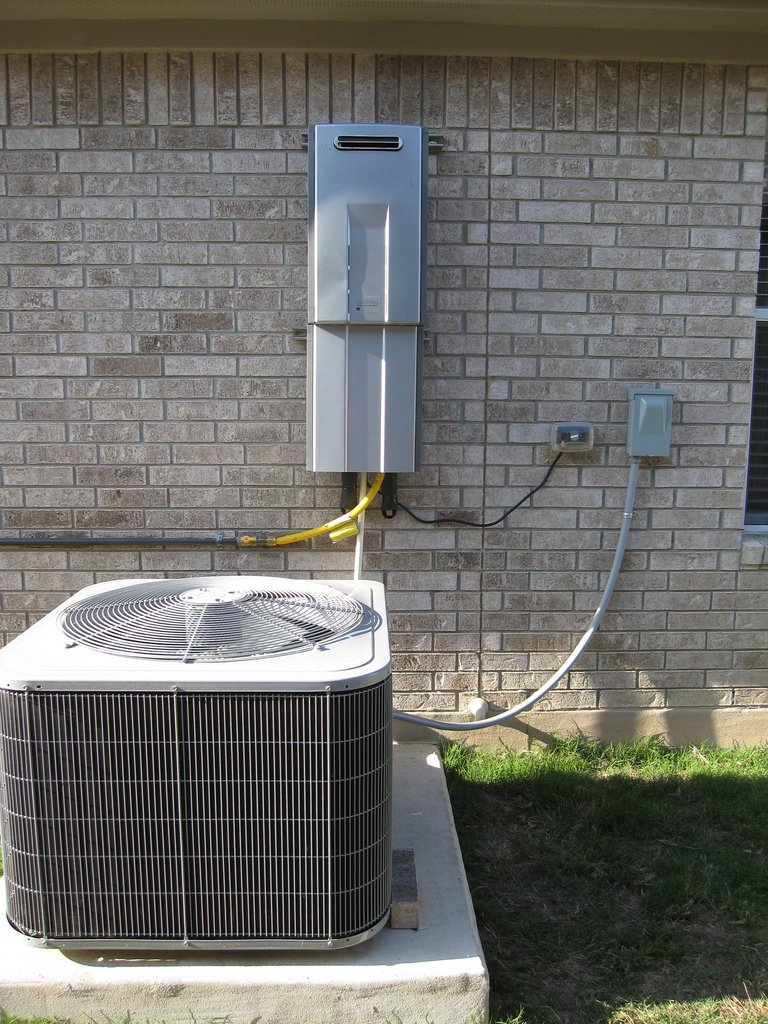A tankless water heater employs a unique technique to heat water. Unlike conventional water heaters that heat water in the tank continually, a tankless heater heats water as per your specific requirement. This offers a wealth of benefits. Though a tankless water heater is expensive to buy compared to a regular water heater, the pros far outweigh the cons. In other words, the money you save over a period easily offsets the initial cost.
Working Mechanism
Before you try to learn how these tankless heaters work, it’s imperative to understand how standard heaters work. A traditional heater setup comprises a tank that heats and holds water. To supply hot water on demand, the tank heats the water continually so that a constant temperature is maintained. The energy used for maintaining the water temperature even when the water isn’t being used is referred to as standby heat loss.
Tankless systems do not incur standby loss as they heat incoming water only as per your requirement – they are also called “on-demand” water heaters, as a result. And this is what makes tankless heaters more efficient than traditional heaters. To increase the temperature and offer you a piping-hot shower, tankless systems incorporate a heat exchanger. It’s a device that transports heat from a source to another. Heat exchangers are found in refrigerators, air conditioners, and car radiators.
In a tankless heater, the heat exchanger transfers heat produced by a gas-fired burner or electric coil to the water coming out of the faucet. The exchanger gets activated by the incoming water flow. When the hot water tap is turned on, the water circulates via the activated exchanger that heats the water to a preset temperature.
Tankless Water Heater Advantages
A tankless setup helps save money each year on your energy bills while conserving natural gas at the same time. It uses 30-40 percent less energy compared to tank-equipped units. Based on water usage, you could save $100 or more every year.
The biggest advantage of this is that additional costs of accumulating 50-60 gallons of hot water in the tank are eliminated, which helps expend less energy. Also, they provide continuous hot water supply, which is ideal for filling a whirlpool or a large hot tub.
A tankless heater has a much longer lifespan, lasting at least five years more than your traditional heaters. The actual life depends on how well you maintain and use the heater. If you do well with the upkeep, you can extract a lot more years of life from the heater.
The “tankless” nature means the heater would occupy minimal space and can be mounted on a wall. You can almost be certain of unlimited hot water supply if you treat the heater right.
Types
Tankless water heaters are sold as whole-house heaters and point-of-use heaters. A point-of-use system is small and heats water for only a couple of outlets (at max) – for instance, your kitchen sink. Due to their size, they could go in a closet or under a cabinet. These are beneficial as they could be installed nearer to an outlet and avoid loss of water courtesy “lag time”. Lag time is basically the total time it takes the water to meet your faucet. In big houses, lag time could be significant, at times several minutes. Your heating bill may go down, as a result, but the amount of water you consume would increase. A whole-house system is bigger and can manage more than two outlets at the same time.
Tankless water heaters also let you select from propane, natural gas, or electric models. Generally, point-of-use heaters are electric; whole-house setups are typically powered by either propane or natural gas. You can learn more about this topic from other websites that have great information. Which model to choose and what source of heating you must use depends on several factors.
Propane- and gas-powered heaters usually offer more juice compared to electric models, which makes them quite common in bigger houses or in whole-house setups. An electric model and point-of-use scenario gel better, although at times people choose to use a couple of electric heaters instead of one big gas-powered unit. If you’re considering a pool house shower or a water heater setup for an outdoor kitchen, an electric tankless heater is something you’d find more fitting.
 World inside pictures Collect and share the best ideas that make our life easier
World inside pictures Collect and share the best ideas that make our life easier








